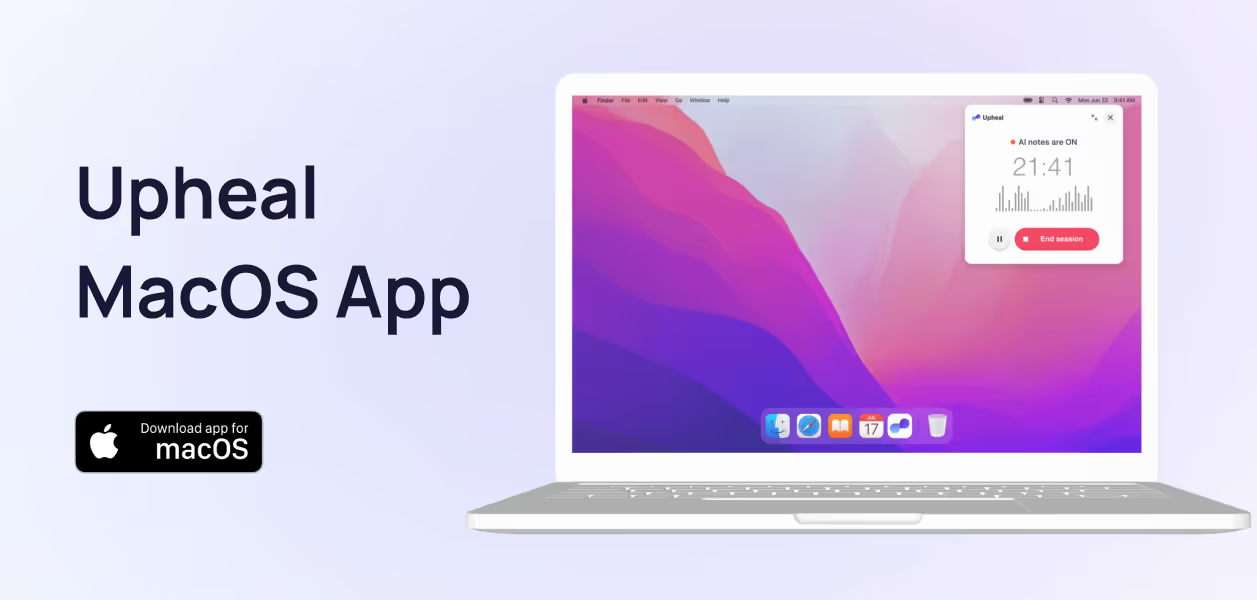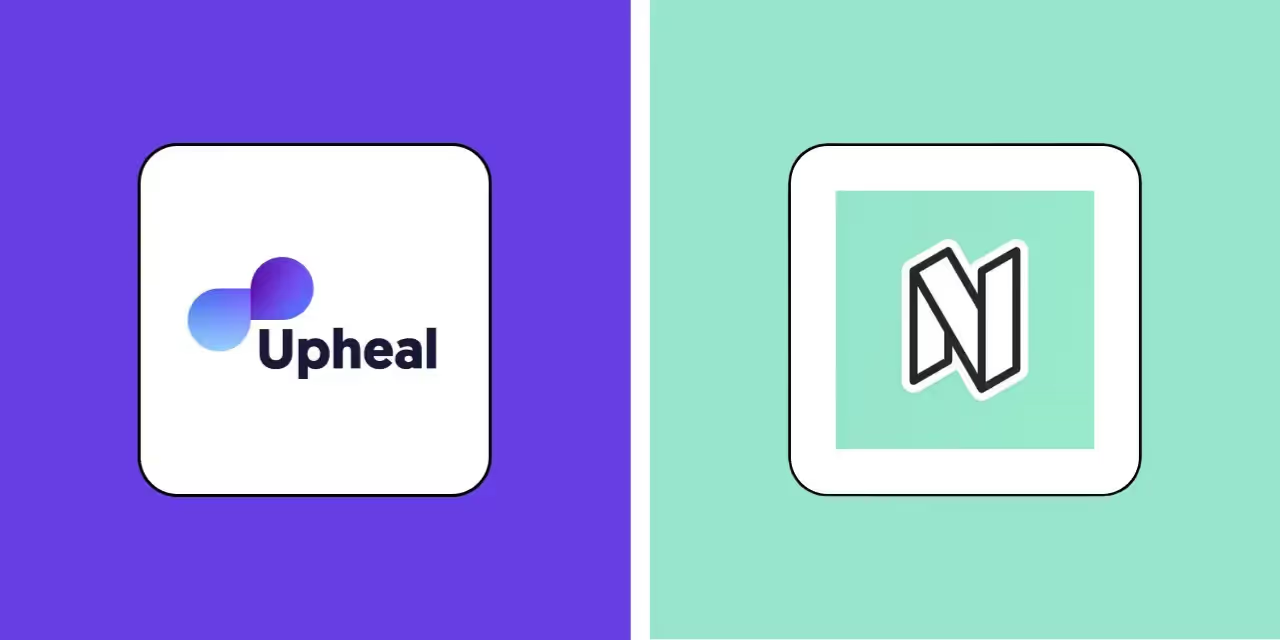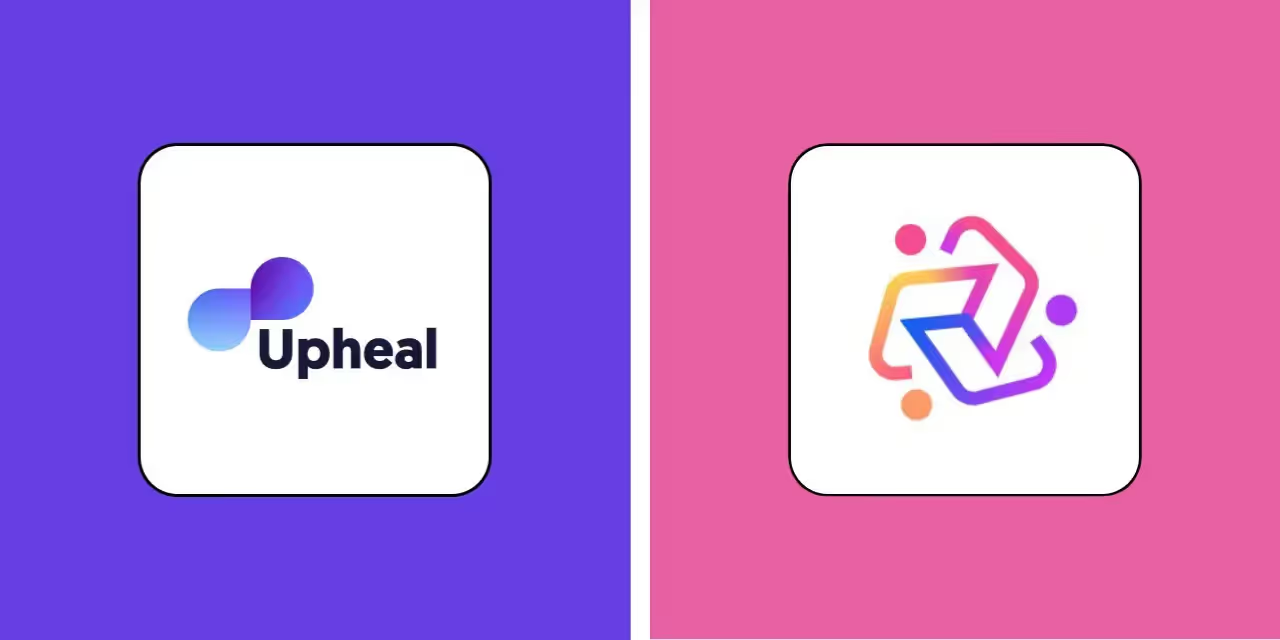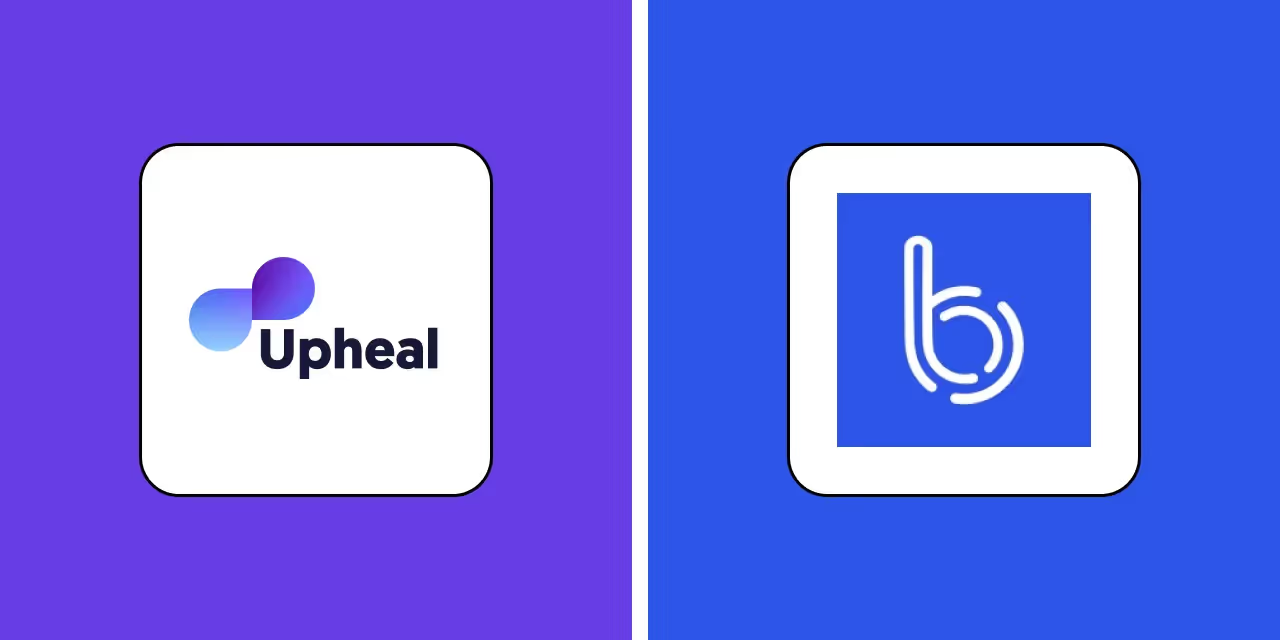Upheal vs Freed: Which AI scribe is best for your practice?

The promise of AI-powered therapy notes is undeniable: streamlined documentation that returns focus to client care. But choosing the right platform requires understanding fundamental differences in approach, specialization, and value.
Freed operates as a comprehensive medical scribe serving all healthcare professionals, while Upheal was purpose-built specifically for mental health practitioners. These different origins shape everything from pricing and features to data handling and clinical insights.
The choice between them isn't just about features — it's about finding a technology partner that truly understands the unique needs of therapeutic practice.
Main differences between Upheal and Freed
While both platforms generate AI-powered clinical notes, their approaches to cost, data handling, specialization, and workflow reveal fundamental philosophical differences about serving mental health professionals.
Pricing and accessibility
The most immediate difference between these platforms is cost and accessibility. Upheal provides unlimited AI-generated notes completely free, with advanced features available from $19/month when billed annually. This pricing structure removes financial barriers to ethical AI adoption, ensuring that privacy-conscious documentation tools are accessible regardless of practice size or budget.
Freed costs $90/month per clinician with only a 7-day trial, making it one of the most expensive options in the market. For solo practitioners or small group practices, this pricing can represent a significant investment that may be difficult to justify when equally capable alternatives are available at a fraction of the cost.
Privacy and data protection
The most significant distinction between these platforms lies in their fundamental approach to client data — an area where mental health professionals rightly demand the highest standards.
The information in the table above is current as of August 2025. It will be updated quarterly to reflect any recent improvements to Freed’s privacy policy as they catch up to Upheal.
Upheal requires explicit opt-in consent from both therapist and client before any session data is used for AI training. This means your clients' most vulnerable disclosures are never used to improve the system unless everyone has made an active, informed choice to participate. All data is thoroughly de-identified according to rigorous standards, and therapists maintain complete control over what information is retained or deleted.
Freed follows conventional healthcare AI practices, using session data to train their models by default. While they maintain strong security certifications, clients cannot opt out of their data being used to improve the platform. According to their terms of service, Freed may also sell aggregated data — a practice that fundamentally transforms therapeutic exchanges into commercial assets.
Medical scribe vs built-for-purpose
Freed serves all healthcare specialties, from primary care to surgery to mental health. This broad focus brings certain advantages in terms of proven reliability across medical settings, but it means the platform lacks specialized features that mental health professionals need most. Freed doesn't offer treatment plan integration, therapeutic analytics, or the nuanced understanding of behavioral health documentation that purpose-built tools provide.
Upheal was designed from the ground up for mental health practitioners. The platform understands therapeutic modalities, tracks therapeutic alliance dynamics, and provides insights specifically relevant to behavioral health practice. Features like the Golden Thread treatment planning system and advanced session analytics reflect deep understanding of how therapists actually work with clients over time.
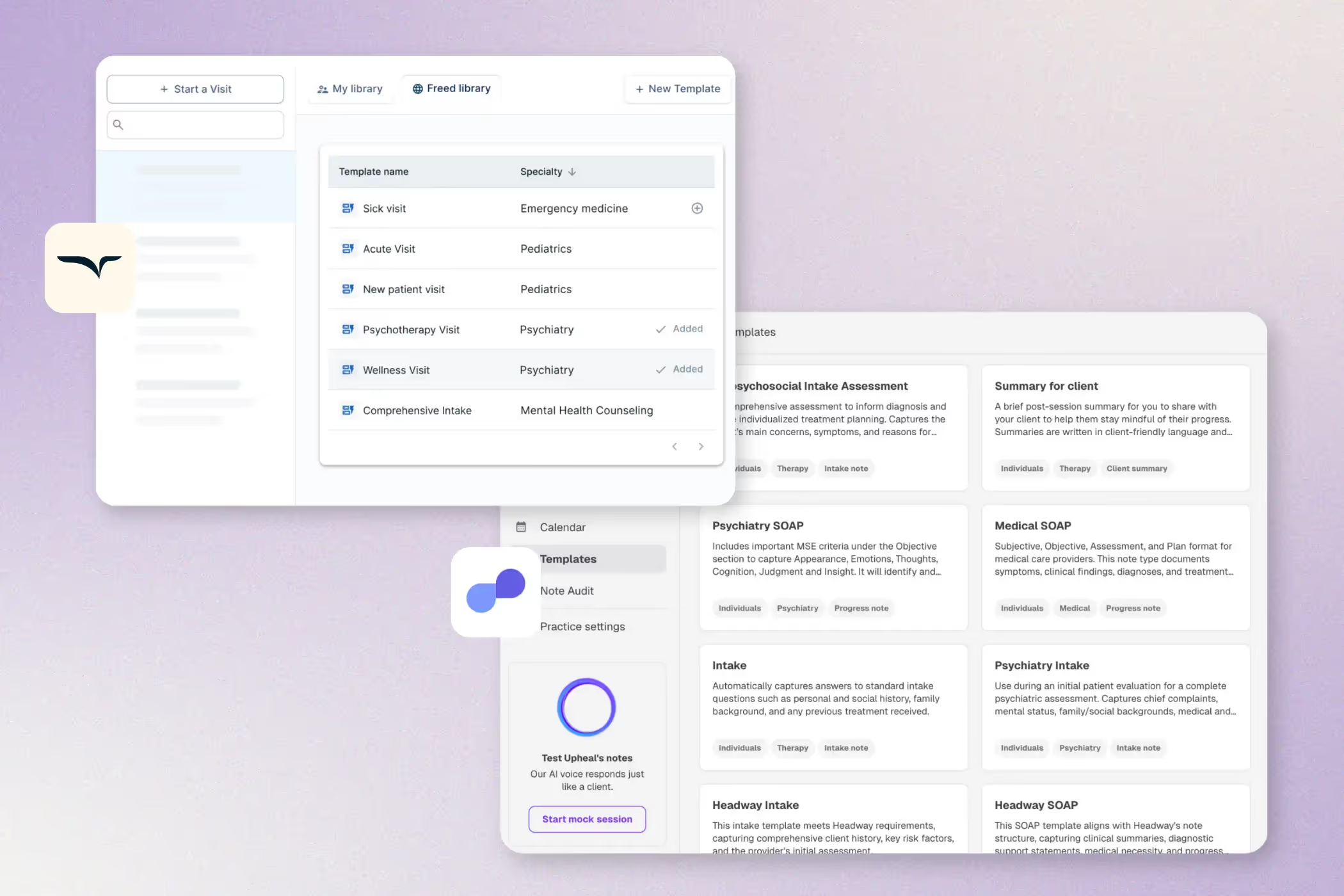
Input options and flexibility
Upheal's multiple documentation methods Upheal supports therapists who prefer different documentation approaches. You can generate comprehensive notes from brief written summaries, dictated overviews, or session recordings. This flexibility means you're never forced to record sensitive conversations if that doesn't align with your practice style or client comfort levels.
Freed's recording requirement Freed requires session recordings to function, which may not suit all therapeutic relationships or practice settings. Some clients feel uncomfortable being recorded, and certain therapeutic approaches work better without the presence of recording technology in the room.
Comparing core features
While both platforms handle basic AI note generation effectively, their feature sets reveal different philosophies about what therapists need from documentation technology.
The information in this table is current as of July 2025.
Golden Thread treatment planning
Upheal's Golden Thread feature represents a fundamental reimagining of treatment planning that creates a client-centered narrative integrating all components of care. This system links interventions directly to treatment goals, tracks progress over time, and ensures that every session builds meaningfully toward therapeutic outcomes.
The Golden Thread doesn't just document what happened in session — it weaves together the story of therapeutic change, making it easier to demonstrate progress to clients, supervisors, and insurance providers. This level of integration between treatment planning and session documentation is unavailable in general medical scribes like Freed.
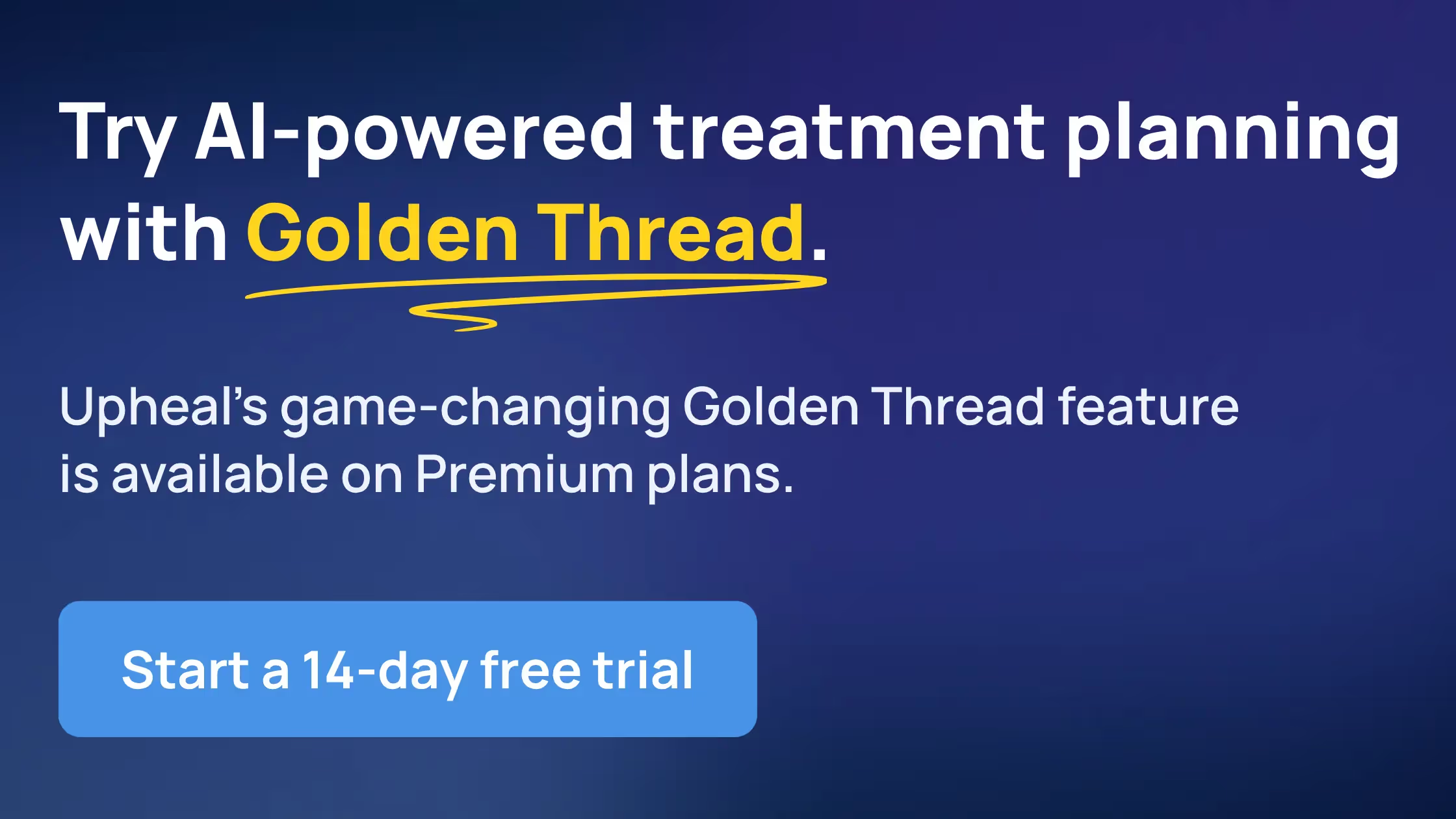
Advanced analytics for therapeutic growth
Upheal provides therapists with detailed insights into client interactions, session patterns, and therapeutic dynamics. These analytics include talk-to-listen ratios, emotional tone tracking, and identification of key therapeutic moments that contribute to client progress.
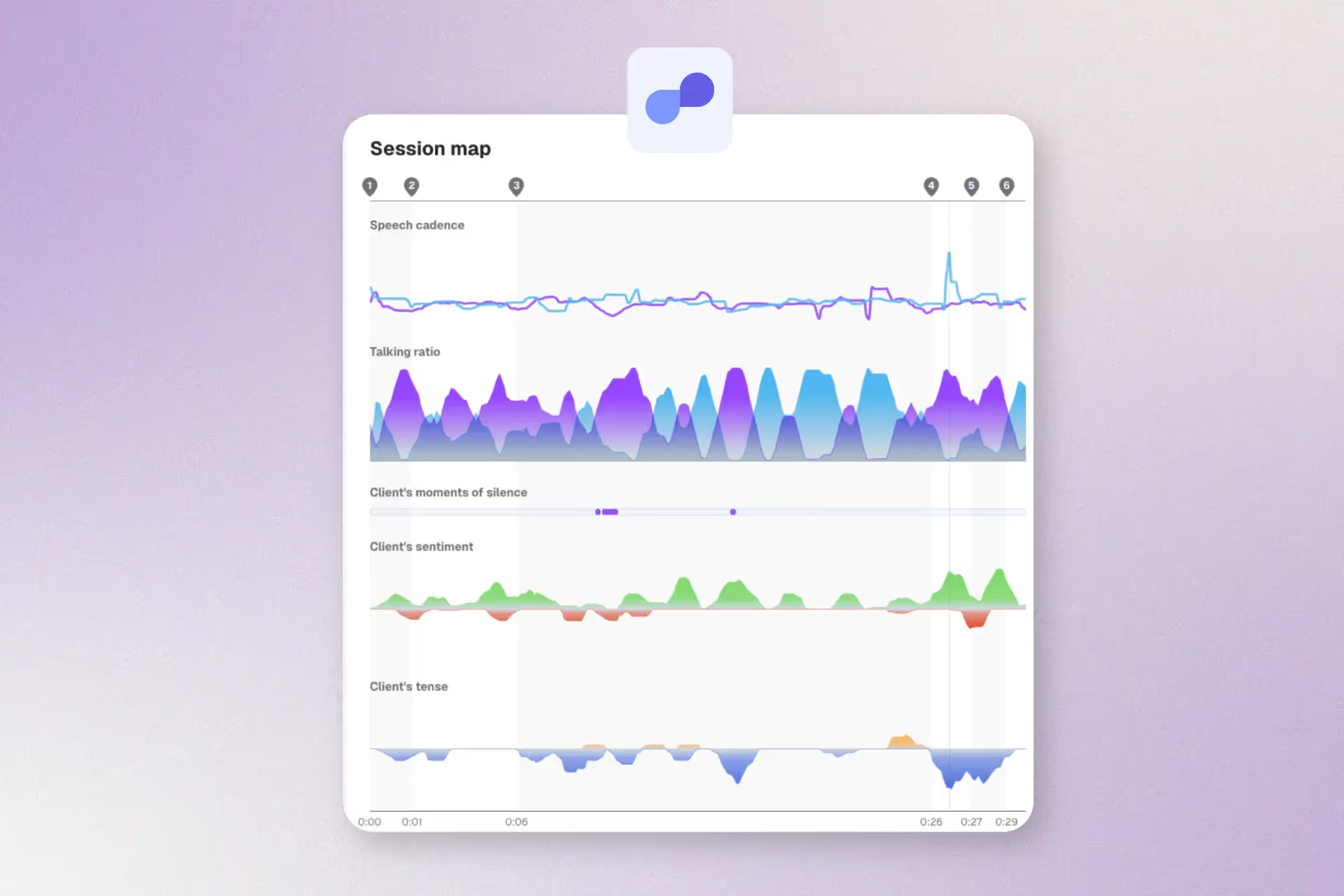
These insights aren't merely interesting data points — they become an integral part of the clinical conversation therapists have with clients and in supervision. Freed's focus on basic documentation means it lacks these deeper analytical capabilities that support professional development and clinical excellence.
What therapists say about these platforms
The therapeutic community's response to these platforms reveals telling insights about what practitioners truly value in each tool.
Freed’s high prices are often called out by therapists, who find more specialized and affordable tools (like Upheal) to be a stronger choice for their practice.
“The note quality is dramatically better and the pricing is like half of Freed. I don't understand why I need to pay more for Freed than for my EHR, plus it writes generic notes that I need to edit extensively.”
Freed’s general medical approach sometimes misses nuances important to mental health practice, with some therapists noting that specialized behavioral health features would enhance their clinical work.
Upheal’s depth of clinical understanding resonates with mental health professionals:
"Between the four tools currently available to help private practice therapists streamline their documentation — AutoNotes, Blueprint, Mentalyc, and Upheal — Upheal comes out as the winner in terms of easing the burden of documentation and providing additional session insights that may be helpful for the therapist."
Hannah Weisman, PhD
Even previously-skeptical clinicians highlight the importance of deeper functionality that is tailored to mental health care:
“Upheal offers many features that other AI clinical note takers do not. The analytics set Upheal apart, the formatting of their notes with some customizability, and more. […] When mental health providers pay for a service, it is supposed to make their job easier, not more tedious or create unnecessary errors that wouldn't have been there while taking notes traditionally.”
Daniel Elliott, PhD
Choosing the right partner for your practice
Both Upheal and Freed offer legitimate solutions for AI-powered clinical documentation, but they serve different practice contexts and priorities.
Freed works for large healthcare organizations or hospital systems that need consistent documentation across multiple medical specialties. Its broad medical focus and established track record in diverse healthcare settings make it valuable for integrated health systems where therapists work alongside physicians, nurses, and other medical professionals using the same documentation platform.
For individual therapists and mental health practices, however, Upheal offers superior value across every dimension that matters most. Upheal is more powerful with advanced features like Golden Thread treatment planning and therapeutic analytics. It's more secure with explicit consent requirements and transparent privacy practices. It's more purpose-built with deep understanding of behavioral health workflows. And it's significantly more affordable, with unlimited free notes and premium features at a fraction of Freed's cost.
The platform's commitment to explicit consent, behavioral health specialization, and accessible pricing creates a foundation for ethical AI adoption that serves both immediate efficiency needs and long-term professional values. When your documentation tool understands therapy as deeply as you do, the result is not just faster notes — but better clinical care.


